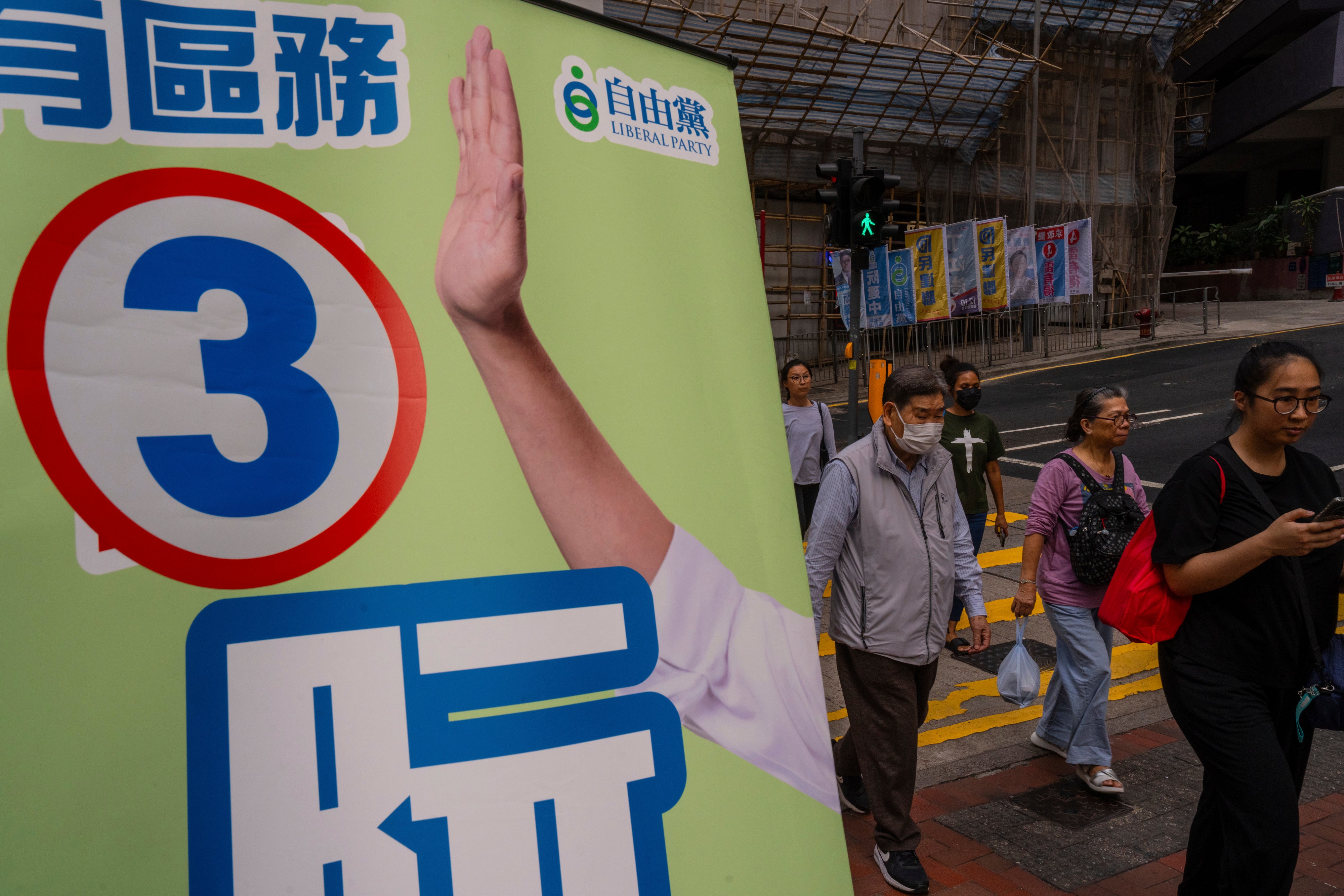Hong Kong leader praises election turnout as voter numbers hit record low
Hong Kong leader John Lee has praised the 27.5% voter turnout in the city’s weekend election, a record low since the territory returned to Chinese rule in 1997

Your support helps us to tell the story
From reproductive rights to climate change to Big Tech, The Independent is on the ground when the story is developing. Whether it's investigating the financials of Elon Musk's pro-Trump PAC or producing our latest documentary, 'The A Word', which shines a light on the American women fighting for reproductive rights, we know how important it is to parse out the facts from the messaging.
At such a critical moment in US history, we need reporters on the ground. Your donation allows us to keep sending journalists to speak to both sides of the story.
The Independent is trusted by Americans across the entire political spectrum. And unlike many other quality news outlets, we choose not to lock Americans out of our reporting and analysis with paywalls. We believe quality journalism should be available to everyone, paid for by those who can afford it.
Your support makes all the difference.Hong Kong leader John Lee on Tuesday praised the 27.5% voter turnout in the city's weekend election, a record low since the territory returned to Chinese rule in 1997.
Sunday's district council election was the first held under new rules introduced under Beijing’s direction that effectively shut out all pro-democracy candidates.
“The turnout of 1.2 million voters has indicated that they supported the election, they supported the principles,” Lee said at a news conference.
“It is important that we focus our attention on the outcome of the election, and the outcome will mean a constructive district council, rather than what used to be a destructive one,” he said.
Sunday's turnout was significantly less than the record 71.2% of Hong Kong's 4.3 million registered voters who participated in the last election, held at the height of anti-government protests in 2019, which the pro-democracy camp won by a landslide.
Lee said there was resistance to Sunday's election from prospective candidates who were rejected under the new rules for being not qualified or lacking the principles of “patriots” administering Hong Kong.
“There are still some people who somehow are still immersed in the wrong idea of trying to make the district council a political platform for their own political means, achieving their own gains rather than the district’s gain,” he said.
The district councils, which primarily handle municipal matters such as organizing construction projects and public facilities, were Hong Kong’s last major political bodies mostly chosen by the public.
But under the new electoral rules introduced under a Beijing order that only “patriots” should administer the city, candidates must secure endorsements from at least nine members of government-appointed committees that are mostly packed with Beijing loyalists, making it virtually impossible for any pro-democracy candidates to run.
An amendment passed in July also slashed the proportion of directly elected seats from about 90% to about 20%.
“The de facto boycott indicates low public acceptance of the new electoral arrangement and its democratic representativeness,” Dominic Chiu, senior analyst at research firm Eurasia Group, wrote in a note.
Chiu said the low turnout represents a silent protest against the shrinking of civil liberties in the city following Beijing's imposition of a tough national security law that makes it difficult to express opposition.
“Against this backdrop, the public took the elections as a rare opportunity to make their opposition to the new normal known — by not turning up to vote,” he said.
Since the introduction of the law, many prominent pro-democracy activists have been arrested or have fled the territory.